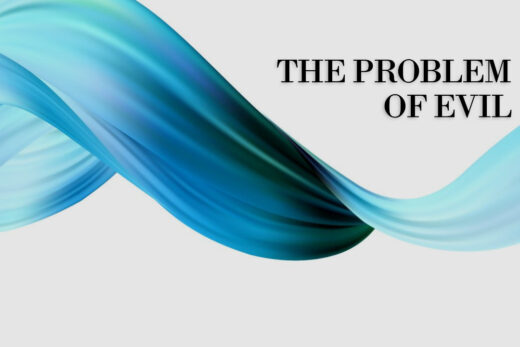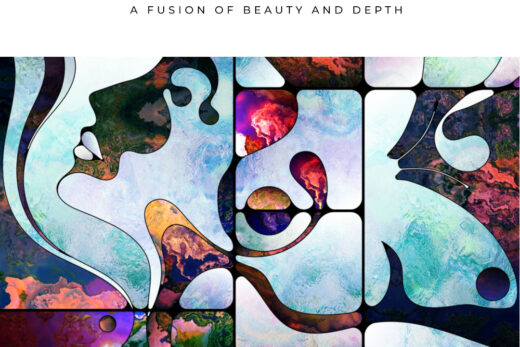When we navigate the vast expanse of human understanding, two significant coordinates emerge: Eastern and Western philosophy. The intellectual traditions of the East and West have evolved differently, offering unique perspectives on life and the universe. The comparison between Eastern vs Western philosophy uncovers striking contrasts and surprising overlaps. Let’s embark on a journey through this philosophical landscape.
Eastern Philosophy: An Overview
Originating from the heart of Asia, Eastern philosophy embodies the wisdom of China, India, Japan, and beyond. It nurtures diverse philosophical schools such as Confucianism, Buddhism, Taoism, and Hinduism, each with its unique view of life and existence.
Eastern philosophy is like a grand symphony of balance and harmony. It places emphasis on the connectivity of all things, seeing the individual as part of a larger whole – a thread woven into the universal fabric. It encourages an introspective journey, inspiring individuals to cultivate inner peace, wisdom, and enlightenment.
Discourses in Eastern philosophy often allow room for interpretation and introspection. They adopt a more inductive style, emphasizing experience and intuition. Abstract concepts like karma, dharma, and chi pervade the Eastern philosophical landscape, reflecting the complex and interconnected nature of life and existence.
Western Philosophy: An Overview
Western philosophy has its roots firmly planted in Ancient Greece, where thinkers like Socrates, Plato, and Aristotle began questioning the world in unprecedented ways. This analytical tradition was carried forward by philosophers such as Descartes, Kant, and Nietzsche, shaping the Western thought we know today.
Western philosophy often employs a deductive style, keen on logical reasoning and empirical evidence. It scrutinizes the external reality, breaking down complex phenomena into simpler, understandable parts. This focus on rational thinking has played a crucial role in scientific advancements and the growth of critical thinking.
In Western philosophy, the concept of the self is generally individualistic, valuing personal freedom and autonomy. This perspective fuels many philosophical debates on moral responsibility, free will, and personal identity.
Comparative Analysis: When East Meets West
Drawing a comparison between Eastern and Western philosophies reveals not just stark contrasts, but also fascinating overlaps.
The Focus of Philosophy
While Eastern wisdom centers on human actions, ethics, and the quest for inner peace, Western philosophy seeks to understand the nature of reality and knowledge. The Eastern approach often takes on an introspective tone, examining how to lead a meaningful, fulfilling life. On the other hand, Western philosophy excels in dissecting external events, investigating causality, and seeking objective truths.
Methodologies
The methodologies used in Eastern and Western philosophical traditions also offer a striking contrast. The Western tradition, with its analytical style, breaks down concepts and categories, inspecting them under the microscope of logical reasoning. The Eastern philosophy, in contrast, tends to adopt a more holistic approach, looking at the broader picture and aiming to address societal issues and human dilemmas.
Terminology and Discourse
The terminologies employed in Eastern and Western philosophy mirror their diverging worldviews. Western terminology is often explicit, clear, and based on rigid categories. In contrast, Eastern terminology can be more flexible, dynamic, and adaptable, reflecting the fluid nature of reality as seen from an Eastern perspective.
Impact on Individuals and Society
The impact of these philosophies on individuals and societies is profound. Western philosophy, with its probing investigation of nature, encourages control over nature and has played a significant role in the advancement of modern science. In contrast, Eastern philosophy, focusing on balance, harmony, and personal growth, offers existential remedies, fostering peaceful and cooperative societal frameworks.
Conclusion
These comparisons offer a broad yet enlightening overview of Eastern and Western philosophies. It’s crucial to remember that these are not exclusive compartments but intersecting continuums. Many contemporary thinkers attempt to bridge this dichotomy, creating a fusion that brings the best of both worlds together.
By understanding the diverse perspectives of Eastern and Western philosophies, we enrich our worldview, offering a broader lens through which we can perceive and interact with the world. The journey into these grand categories of thought is like unlocking a treasure trove of wisdom, transforming our perspectives and enriching our understanding of life and existence.
Frequently Asked Questions
What are the primary differences between Eastern and Western philosophies?
Eastern and Western philosophies differ in their focus, methodologies, terminologies, and impact on individuals and society. Eastern philosophy centers on human actions and ethics, focusing on balance and harmony. In contrast, Western philosophy seeks to dissect reality and external events, employing rigorous logical reasoning.
How do the Eastern and Western concepts of self differ?
The Eastern concept of self often views the individual as interconnected with the universe and society, emphasizing unity and harmony. In contrast, the Western concept of self is more individualistic and autonomous, placing value on personal freedom and independence.
Who are some notable philosophers in the Eastern and Western traditions?
Eastern philosophy boasts great thinkers like Confucius, Lao Tzu, and Buddha. In the West, influential philosophers range from ancient figures like Socrates, Plato, and Aristotle to modern thinkers like Descartes, Kant, and Nietzsche.
What are the different philosophical methods employed in the East and West?
Western philosophy often adopts a deductive, analytical approach, breaking down and examining concepts. In contrast, Eastern philosophy tends to use a more inductive, holistic approach, seeking to address broader societal and existential issues.
How have Eastern and Western philosophies impacted society?
Western philosophy, with its emphasis on logic and analysis, has significantly contributed to modern science and the promotion of critical thinking. Eastern philosophy, with its focus on balance and harmony, has fostered a more peaceful, cooperative societal ethos.




